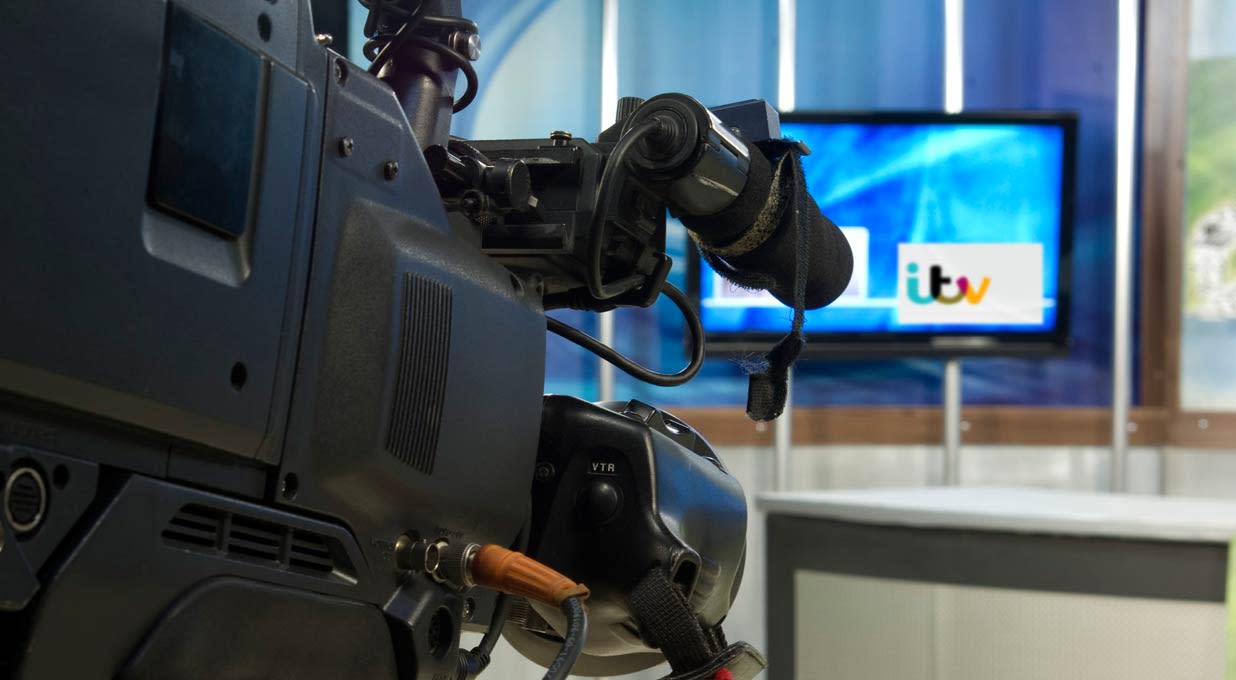ITV’s first-half revenue fell 3% to £1.9bn. Growth in advertising was offset by an expected decline in ITV Studios due to the timing of deliveries, meaning performance in this segment will be weighted to the second half.
Underlying cash profit (EBITA) rose from £152mn to £213mn, driven by a strong performance in Media & Entertainment and cost-savings.
Free cash flow fell from an inflow of £51mn to an outflow of £19mn, largely due to increased spending as production resumed after strikes in the US last year. Net debt improved from £0.7bn to 0.5bn.
An interim dividend of 1.7p per share has been announced, in line with last year. £53mn of the £235mn share buyback programme was completed in the period.
The shares fell 4.7% following the announcement.
Our view
ITV relies on companies paying to advertise on its traditional television channels. But given the structural decline of broadcast advertising, that makes moving ITV's top line in the right direction a very difficult task.
One bright spot is digital advertising. ITVX, the streaming platform, has continued its strong run of growth. This is vitally important for ITV's transition away from the declining audiences that traditional broadcast attracts. Advertising revenue here is growing at pace, and we’re pleased with the continued momentum. But its digital offerings don't yet have enough scale to carry the weight of weakness in the free-to-air side of things.
The roughly 50% increase in digital revenues targeted by 2026 looks achievable. The group’s access to a huge slate of produced global content, as well as homegrown favourites like Love Island, should help drive growth in the viewer base, which is key to meeting this target.
There's no getting away from the sheer scale of competition in this sector. The competition has substantially deeper pockets to throw at growing market share. It’s an expensive arena to play in and a ramp-up in production has weighed on cash flows in the first half.
The Studios business makes and distributes shows in the UK and abroad. Some of these are sold back to ITV's Media & Entertainment business, but other blockbusters like Line of Duty are made for others. The Studios are expected to have a record year but fortunes could quickly change if the division produces a string of flops.
Medium-term guidance of 5% average annual organic growth between 2021 and 2026 doesn’t look too demanding, but fall out from last year’s Hollywood strikes and weak demand in Europe meant this year has got off to a tough start. The phasing of title deliveries means it should have the TV hits needed to get back on track, but steadying the ship won’t be an easy task.
Margins are also unlikely to ever shoot the lights out. The likes of Netflix can attest to the cash-pit that content generation can be. Meanwhile, a chunk of revenue is still tied to the less glamourous terrestrial TV side of things, and demand here is proving tricky.
Net debt has also come down, which adds a layer of flexibility and there’s a generous 6.1% dividend yield on offer. A £235mn share buyback scheme is also underway as a means of distributing the net proceeds from the Britbox disposal in March 2023. Please remember no shareholder return is ever guaranteed, especially when the outlook remains rocky for the group.
ITV has come a long way. But concerns remain over digital competition and the economy. Having the right idea is entirely different to being able to move fast enough to offset the structural decline in broadcast advertising. That’s reflected in a valuation below the long-term average, and there could still be further challenges ahead.
Environmental, social and governance (ESG) risk
The media industry’s ESG risk is relatively low. Product governance is the key risk driver, alongside business ethics, labour relations and data privacy & security.
According to Sustainalytics, ITV’s management of ESG risk is strong. Its environmental policy is adequate and executive remuneration is explicitly linked to sustainability performance targets. However, its overall ESG reporting falls short of best practice.
ITV key facts
All ratios are sourced from Refinitiv, based on previous day’s closing values. Please remember yields are variable and not a reliable indicator of future income. Keep in mind key figures shouldn’t be looked at on their own – it’s important to understand the big picture.
This article is original Hargreaves Lansdown content, published by Hargreaves Lansdown. It was correct as at the date of publication, and our views may have changed since then. Unless otherwise stated estimates, including prospective yields, are a consensus of analyst forecasts provided by Refinitiv. These estimates are not a reliable indicator of future performance. Yields are variable and not guaranteed. Investments rise and fall in value so investors could make a loss.
This article is not advice or a recommendation to buy, sell or hold any investment. No view is given on the present or future value or price of any investment, and investors should form their own view on any proposed investment. This article has not been prepared in accordance with legal requirements designed to promote the independence of investment research and is considered a marketing communication. Non-independent research is not subject to FCA rules prohibiting dealing ahead of research, however HL has put controls in place (including dealing restrictions, physical and information barriers) to manage potential conflicts of interest presented by such dealing. Please see our full non-independent research disclosure for more information.


